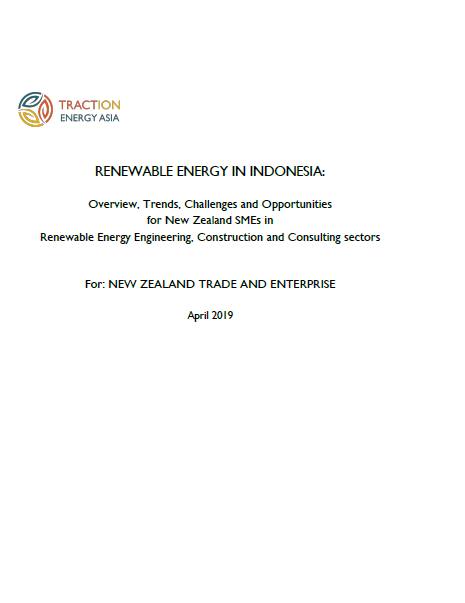Bangka Tengah, June 26, 2025 – As part of its ongoing commitment to supporting Indonesia’s ambition to achieve national greenhouse gas (GHG) emission reduction targets, Traction Energy Asia today successfully organized the Technocratic Data Dissemination, Focus Group Discussion (FGD), and Technical Guidance on Low-Carbon Regional Development Policy Strategy in Bangka Tengah Regency. The event, held at Novotel Bangka Hotel and Convention Centre, served as a strategic forum to strengthen the foundations of sustainable development at the local level.
This strategic initiative is an integral part of Traction Energy Asia’s ongoing commitment to supporting Indonesia’s ambition to achieve national greenhouse gas (GHG) emission reduction targets as outlined in the Enhanced National Determined Contribution (ENDC) document. Traction believes that strengthening the capacity of local governments is key to building a robust foundation for sustainable development at the local level. GHG emissions not only originate from sectoral activities but also from land utilization for regional economic development. Therefore, promoting low-carbon development policy strategies in regions is a crucial step to ensure sustainable growth.
This activity was specifically designed to achieve three main objectives aimed at enhancing the capacity of Bangka Tengah Regency’s local government apparatus in formulating effective Low-Carbon Regional Development Policy Strategies:
Technocratic Data Dissemination: We presented important findings related to Green Regional Gross Domestic Product (PDRB Hijau), the concept of Sustainable Spatial Planning (Rencana Tata Ruang dan Wilayah / RTRW Lestari), and the baseline GHG emissions of Bangka Tengah Regency. This information served as a shared foundation, providing a clear picture of the current conditions and development potential of the region, and enabling evidence-based decision-making.
Focus Group Discussion (FGD): Through focused discussion sessions, we facilitated constructive dialogue to gather valuable ideas and input from local stakeholders. This process is vital for refining low-carbon development strategies and programs to be relevant and adaptive to Bangka Tengah’s specific context.
Technical Guidance on Program Integration: We provided practical training to local government officials on how to integrate low-carbon development programs and Regional Action Plans (RAD) into existing regional planning documents, such as the Regional Medium-Term Development Plan (RPJMD) and the Regional Government Work Plan (RKPD). This ensures that the formulated strategies can be implemented concretely and measurably within the local government framework.
The event saw active participation from key representatives of the Bangka Tengah Regency Government, including Drg. Muhammad Anas Ma’ruf, Expert Staff for Politics, Law, and Government of the Bangka Tengah Regency Secretariat, representing Regent Algafry Rahman, S.T., M.Pd, Head of Bappeda Joko Triadhi, as well as officials from various vital Regional Government Organizations (OPD) such as Bappeda of Bangka Belitung Islands Province; Fisheries Office; Agriculture and Food Security Office; Environmental Office; Housing, Settlement, and Transportation Office; Population and Civil Registration Office; Health Office; Industry, Trade, Cooperatives, and Small and Medium Enterprises Office (Disperindagkop); Public Works, Spatial Planning, and Land Office; Environmental Office; and BPS Bangka Tengah Regency.
During the opening remarks delivered by Muhammad Anas, Regent Algafry Rahman expressed appreciation to Traction for choosing Bangka Tengah as one of five selected regencies to receive facilitation for sustainable development planning policies. He highlighted that economic growth and regional development in Bangka Tengah often overlooked environmental factors, leading to increased air pollution and greenhouse gas emissions. Therefore, sustainable development planning is crucial as it guides Bangka Tengah to enhance regional economic growth without sacrificing nature. Furthermore, sustainable development is a mandate for local governments to successfully contribute to the Indonesia Emas 2045 vision outlined in the National Long-Term Development Plan (RPJPN).
Remarks continued with Tommy Pratama, Executive Director of Traction Energy Asia. He explained that this data dissemination activity is a continuation of Traction’s regional assistance program, which has been ongoing since 2021, now covering 37 regencies, with five of them focusing more deeply on formulating low-carbon strategies. This assistance aims to ensure that regional development not only fosters economic growth but also actively considers environmental sustainability, supported by comprehensive data on greenhouse gas (GHG) emissions, Sustainable Spatial Planning (RTRW Lestari), Green Regional Gross Domestic Product (PDRB Hijau), and close collaboration with experts and high enthusiasm from the Bangka Tengah Regency Government.
Following, Joko Triadhi, Head of Bappelitbangda Bangka Tengah Regency, also delivered remarks. Representing the Bangka Tengah Regency government, he expressed appreciation and gratitude for the dissemination of the Low-Carbon Development Policy Strategy formulation results, which marked the peak of intensive collaboration with Traction Energy Asia. He confirmed that the important documents produced, such as GHG emission data, RTRW Lestari review, Green PDRB, and policy strategy formulations, would be directly integrated into Bangka Tengah’s Regional Medium-Term Development Plan (RPJMD), demonstrating a tangible commitment to an inclusive and sustainable economic development mission, and readiness to make the GHG emission baseline a key indicator in the RPJMD.

The Traction team, led by Executive Director Tommy Pratama and Program Director Sudaryadi, who also led the event, served as the main organizers and facilitators. The event was also fully supported by experts in their respective fields:
Prof. Firmansyah, PhD (Head of Low-Carbon Development Strategy Drafting Team, Diponegoro University)
Dr. Ardi Adji (Lead Environmental Input-Output Specialist, University of Indonesia)
Firman Afrianto (Lead Sustainable Spatial Planning Specialist, PT Sagamartha Ultima Indonesia)
Puspa Widyarini (Lead GHG Baseline Specialist, Traction Energy Asia)
Doddy Afianto (Regional Development Planning Specialist, Corona Consulting)
And Asri Pebrianti (Regional Economics Specialist, Traction Energy Asia) as the event facilitator.
The first presentation was delivered by Dr. Ardi Adji, who discussed the low-carbon development policy strategy using the Environmental Input-Output (IO) Table. It was found that the air transport sector contributed the highest to Bangka Tengah’s economy, amounting to Rp 2.86 trillion. However, unfortunately, this sector is also the largest emission multiplier in the region, where every one billion rupiah increase in final demand in the electricity sector will increase CO2 emissions by 0.094 Gg CO2e (Not Pro-Environment). Dr. Ardi emphasized that prioritizing “green” sectors with high economic impact and low emissions is a concrete step to achieve low-carbon development in Bangka Tengah. The Seasonal Plantation sector is one of the economic sectors with a high output multiplier (1.1965), high income multiplier (0.5613), and high labor absorption (16.10 workers per 1 billion rupiah investment), but a low emission multiplier in Bangka Tengah Regency (0.00095 Gg CO2e).
Regarding Sustainable Spatial Planning (RTRW Lestari), Firman Afrianto identified several crucial issues requiring serious attention, such as a 9.87% decrease in total carbon stock between 2017-2023 due to significant forest loss, and a concentration of economic activities in Pangkalan Baru and Koba requiring better connectivity. The document also highlighted significant renewable energy potential, such as solar and micro-hydro, but noted overlaps between mining areas and spatial planning, as well as a decrease in vegetation density in some areas. Therefore, policy recommendations include strengthening data-driven spatial planning, implementing Good Mining Practice, restoring critical ex-mining land, and developing renewable energy and green transportation, to ensure sustainable regional development and minimize environmental impact.
From the perspective of GHG baseline, Puspa Widyarini stated that Bangka Tengah faces a significant increasing trend in emissions, peaking at 8,718.50 Gg CO2eq in 2022, and projected to surge to 35,477.80 Gg CO2eq by 2045 under a Business as Usual (BAU) scenario. The transportation, land cover, and electricity production sectors are major emission contributors, but the analysis also identified crucial mitigation opportunities such as degraded forest rehabilitation, agroforestry planting, non-fossil power plant development, low-emission fuel use, and organic fertilizer utilization and waste management. These findings emphasize the urgency of adopting integrated mitigation strategies to achieve emission reduction targets and ensure sustainable regional development.
Summarizing all these findings, Prof. Firmansyah formulated the low-carbon development strategy for Bangka Tengah Regency. He identified priority green sectors based on environmental IO, such as organic agriculture and agroforestry, environmentally friendly aquaculture, local food processing industries, village-based ecotourism, and renewable energy like solar power plants (PLTS), as sectors needing support to boost the local economy while reducing GHG emissions. The recommended strategies for adoption by the Bangka Tengah government include strengthening green MSMEs, village funds for green projects, fiscal incentives for low-emission sectors, green human resource and vocational training, and local downstream processing of agricultural/marine products. Furthermore, he highlighted that issues concerning education and employment require prompt attention to prevent problems from these two sectors creating a domino effect and spreading to other sectors. Economic inclusion, GHG emission levels, human resource quality, and green innovation were set as key performance parameters to measure the success of the implemented strategies.
This entire series of activities solidifies Traction Energy Asia’s commitment to continuously innovate and participate in realizing a sustainable future for Indonesia. Through strategic assistance for partner regencies like Bangka Tengah, Traction is optimistic about achieving national low-carbon targets by making them a model for other regencies or even provinces. We are working shoulder-to-shoulder to create real change for the future of our children and grandchildren. We invite stakeholders and the public to continue following the developments of this collaboration and our other initiatives.




